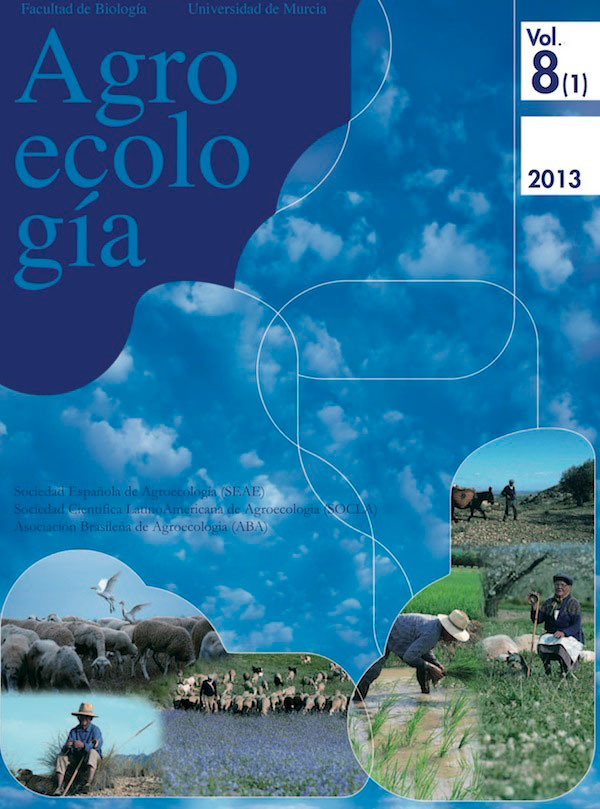Agroecology and resilience to climate change: principles and methodological considerations
Abstract
Most of the current statistics on the impact of climate change on peasant agricultura are broad approximations that do not take into account the heterogeneity of peasant agriculture, nor the range of strategies that peasant have used and still use to confront droughts, hurricanes, flooding, etc. Around the world there are thousands of small farmers that have responded to changing climatic conditions in innovative forms that provide resilience. These farmers possess key lessons of resilience for modern farmers and thus many experts have suggested the rescuing of traditional agroecological management systems as the only viable path to enghance the resilience of modern agroecosystems.This work provides a conceptual and methodological framework to elucidate the principles and mechanisms that underlie the resilience of diversified farming systems, so that these may be transfered to other farmesr to improve the resistance and recovery of their farms affected by climate change. It is urgent to develop a methodology that allows assessment of the capacity of agroecosystems to whistand and recover from extreme climatic events with special emphasis on understanding the processes that explain the observed socio-ecological resilience.Downloads
Las obras que se publican en esta revista están sujetas a los siguientes términos:
1. El Servicio de Publicaciones de la Universidad de Murcia (la editorial) conserva los derechos patrimoniales (copyright) de las obras publicadas, y favorece y permite la reutilización de las mismas bajo la licencia de uso indicada en el punto 2.
2. Las obras se publican en la edición electrónica de la revista bajo una licencia Creative Commons Reconocimiento-NoComercial-SinObraDerivada 3.0 España (texto legal). Se pueden copiar, usar, difundir, transmitir y exponer públicamente, siempre que: i) se cite la autoría y la fuente original de su publicación (revista, editorial y URL de la obra); ii) no se usen para fines comerciales; iii) se mencione la existencia y especificaciones de esta licencia de uso.
3. Condiciones de auto-archivo. Se permite y se anima a los autores a difundir electrónicamente las versiones pre-print (versión antes de ser evaluada) y/o post-print (versión evaluada y aceptada para su publicación) de sus obras antes de su publicación, ya que favorece su circulación y difusión más temprana y con ello un posible aumento en su citación y alcance entre la comunidad académica. Color RoMEO: verde.





